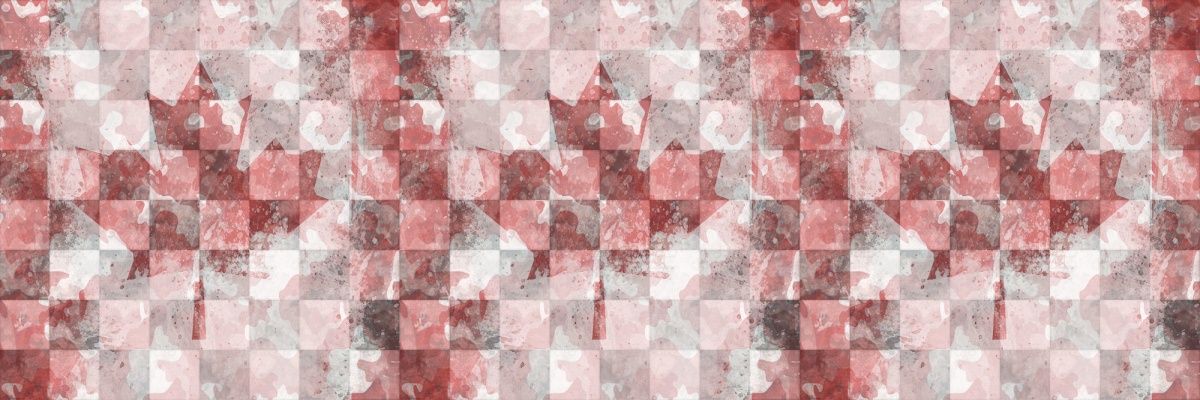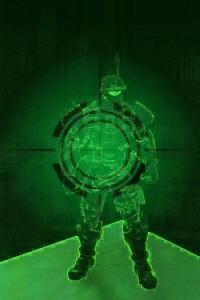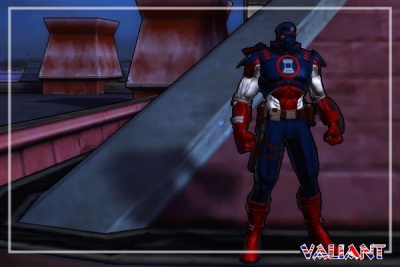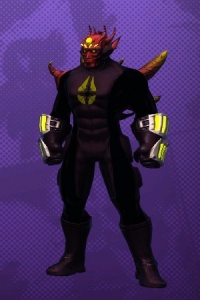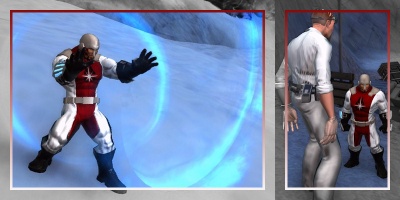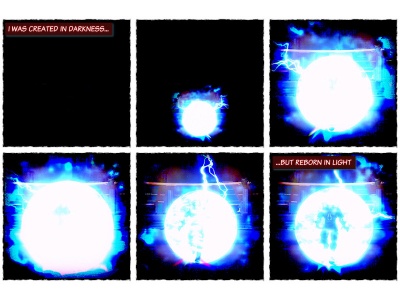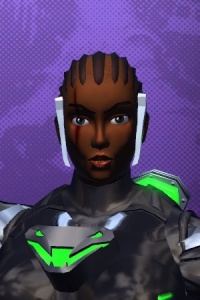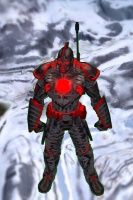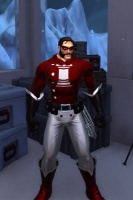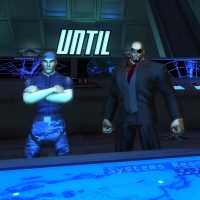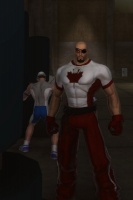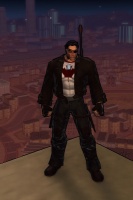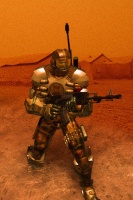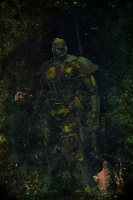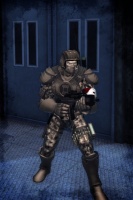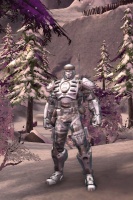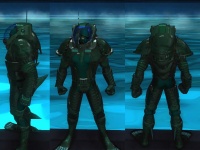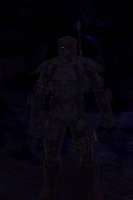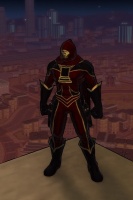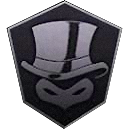Beginnings...
Warren was born on June 30th 1976 at White Horse General Hospital on the banks of the Yukon River to Lucas and Elizabeth McKenzie. Lucas McKenzie was a Corrections Officer at the nearby Wolf Creek Juvenile Corrections Centre, while Elizabeth (a US Citizen by birth) was a Primary School Teacher.
Warren's childhood and teenage years were mostly uneventful except for the death of his father in a traffic collision. This loss caused Warren to retreat into himself, becoming something of a loner. He found it difficult to make and maintain close friendships for fear that he would experience more loss.
The events of July 1992 - destruction of Detroit and partial destruction of neighbouring Canadian city, Windsor - had a major effect on Warren. Shaken out of his melancholy by the damage and loss of life on such a grand scale, Warren made a decision that would change the course of his own life forever.
A Soldier's life for me...
At the age of 17 (and with his mother's permission) Warren applied for and was accepted into the Canadian Military. After showing a natural aptitude with firearms during basic training, Warren was earmarked for deployment to the Special Weapons Detail.
Due to his outstanding results at training, Warren was encouraged to continue his formal education alongside his military training in order that he could gain a commission in the future. Following the advanced weapons training with the Special Weapons Detail, Warren showed an almost preternatural aim and ability with weapons which led him to be co-opted for several overseas operations.
Service History:
Promotion - Corporal [1993 Dec 17]
Following Completion of Special Weapons Training and first deployment
- Operation RECORD [1994/1998/2000/2001]
- Canadian support to the United Nations Iraq-Kuwait Observer Mission (UNIKOM)
Promotion - Master Corporal [1994 Nov 30]
- Operation PALLADIUM [1995/1996]
- Contribution to the NATO Stabilization Force in Bosnia-Herzegovina
- Operation STANDARD [1996]
- Support to United Nations Support Mission in Haiti (UNSMIH)
Promotion - Sergeant [1996 Aug 15]
- Operation STABLE [1996/1997]
- Support to United Nations Support Mission in Haiti (UNSMIH)
- Completion - B.S. Management (2:1) [1997 Jun 30]
Promotion - Second Lieutenant [1998 Jan 24]
Following Completion of Officer Training
- Operation REPTILE [1999/2000]
- Canadian peacekeeping contribution to the United Nations Mission in Sierra Leone (UNAMSIL)
- Operation TOUCAN [2000/2001]
- Peacekeeping support to the International Force in East Timor and United Nations Transitional Administration in East Timor (UNTAET)
Promotion - Lieutenant [2000 Sep 30]
- Operation APOLLO [2001/2002]
- Operations in support of the United States in its military operations in Afghanistan.
- Operation ATHENA [2001/2002/2003]
- Canadian deployment with the International Security Assistance Force in Afghanistan
Promotion - Captain [2003 March 31]
Operation Checkmate...

Fort Churchill / Operation Checkmate
While in Afghanistan in 2003, Warren was approached by a Major General Brock. Brock had been charged with forming a covert team of military specialists to fight the growing menaces which were appearing in Canada almost daily it seemed. Whether super powered villains attracted to Canada by the likes of VIPER and ARGENT or alien invaders, the Military was not willing to leave the defense of the nation to the handful of so called Super Heroes which called Canada home. Intrigued by this new challenge, Warren readily agreed to join the team. Strings were thus pulled and Warren soon found himself stationed near the small Manitoba town of Churchill on the western shore of Hudson Bay.
Fort Churchill is an Arctic site on Hudson Bay with a rail link. It is near the point of maximum auroral activity. This combination of circumstances made it ideal for far-north sounding rocket launches. Initially used by the Canadian Army in 1954, construction of more elaborate facilities in support of the International Geophysical Year began in 1956. The range was closed again in December 1958 after the IGY program ended. It was reopened again in August 1959 by the US Army as part of its network of sounding rocket stations. This allowed use of the site by other groups over the years. In late 1960 a fire largely destroyed the facilities at Fort Churchill. When the United States decided to end its activities at Churchill by June 1970, the Canadian National Research Council took over operations to support the Canadian Upper Atmosphere Research Program. The Canadian military also found the site useful for characterization of the ionosphere for military communications.
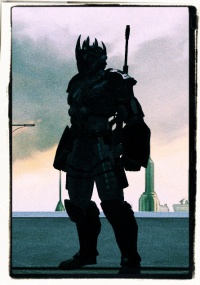
Early shot of Rook's battle armor
By the 1990's the facility was inactive and various attempts to revitalize it failed. It was at this point that the Canadian Army chose to use the site as a base for several of it's covert projects. The majority of the new base was built underground with only several small structures at ground level to give any indication of habitation. The movement of people in and out of the site was explained as chemical and fallout testing due to the checkered history of the site. In early 2002 use of the site was allocated to Major General Brock for Operation Checkmate.
Brock began his monumental task by setting up his operations team and tasking them with reviewing the best and brightest that the Canadian Military had to offer, alongside collating as much information on threats to Canadian soil as they could beg, borrow or even steal. By late summer Brock was ready to begin assembling his first team.
Alpha Team Leader
Code: White King
Rank: Colonel, Army
Name: Jean-François Lévesque
Place of Birth: Quebec
Aerial Surveillance & Assault
Code: Black Queen
Rank: Major, Air Force
Name:
Place of Birth:
Ground Surveillance & Assault
Code: Rook
Rank: Captain, Army
Name: Warren McKenzie
Place of Birth: Yukon
Strategist & Explosives
Code: Knight
Rank: Lieutenant, Army
Name:
Place of Birth:
Intelligence & Extraction
Code: Bishop
Rank: Sub-Lieutenant, Navy
Name:
Place of Birth:
The Valiant Few...
Going Home...

